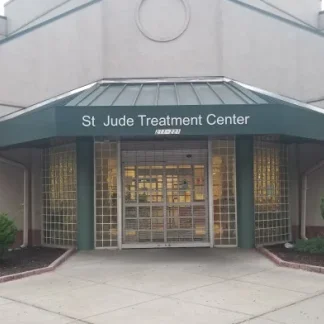Roberto Clemento Family Guidance Center
Roberto Clemento Family Guidance Center is a public rehab located in New York Ci...
Saint Joseph's Rehabilitation Center is a co-occurring mental health and substance abuse treatment center located in Brooklyn, NY. The facility is dedicated to providing comprehensive care to men and women through evidence based treatment options.
Saint Joseph’s offers comprehensive addiction and co-occurring treatment services, including:
The inpatient program at St. Josephs is available to men and women 18 and older and uses multi-disciplinary and evidence based approaches to address addiction, trauma, and co-occurring disorders. Treatment plans are individualized and are based on the unique needs of each individual who comes to us for help. The length of stay for patients is up to 28 days.
Residential treatment services provide a full continuum of residential and housing options—from transitional community residences to permanent housing—so that patients with co-occurring mental illness and substance abuse disorders can transition to living independently.
The medication assisted treatment program combines evidence based medications with counseling and behavioral therapies to effectively manage withdrawal symptoms, reduce cravings, and support long term recovery.
The outpatient services provided by Saint Joseph offer many flexible treatment options to patients. Virtual groups are available on certain days, along with weekly individual therapies. Day and evening rehabilitation programs are available with various treatment services such as MAT, relapse prevention groups, and co-occurring disorders educational and process groups.
To ensure sustained recovery and support post treatment, Saint Joseph’s offers continuing care and aftercare services. These can include relapse prevention planning, outpatient therapy, support groups, and community resources, facilitating a smooth transition into everyday life while maintaining recovery.
Contact us for more information: (718) 485-6000

Connect with St. Jude's Treatment Center by calling their admissions team directly.
(718) 485-6000 Website Get DirectionsDialectical Behavior Therapy (DBT) is a modified form of Cognitive Behavioral Therapy (CBT), a treatment designed to help people understand and ultimately affect the relationship between their thoughts, feelings, and behaviors. DBT is often used for individuals who struggle with self-harm behaviors, such as self-mutilation (cutting) and suicidal thoughts, urges, or attempts. It has been proven clinically effective for those who struggle with out-of-control emotions and mental health illnesses like Borderline Personality Disorder.
Group therapy is any therapeutic work that happens in a group (not one-on-one). There are a number of different group therapy modalities, including support groups, experiential therapy, psycho-education, and more. Group therapy involves treatment as well as processing interaction between group members.
In individual therapy, a patient meets one-on-one with a trained psychologist or counselor. Therapy is a pivotal part of effective substance abuse treatment, as it often covers root causes of addiction, including challenges faced by the patient in their social, family, and work/school life.
Group therapy is any therapeutic work that happens in a group (not one-on-one). There are a number of different group therapy modalities, including support groups, experiential therapy, psycho-education, and more. Group therapy involves treatment as well as processing interaction between group members.
In individual therapy, a patient meets one-on-one with a trained psychologist or counselor. Therapy is a pivotal part of effective substance abuse treatment, as it often covers root causes of addiction, including challenges faced by the patient in their social, family, and work/school life.
In individual therapy, a patient meets one-on-one with a trained psychologist or counselor. Therapy is a pivotal part of effective substance abuse treatment, as it often covers root causes of addiction, including challenges faced by the patient in their social, family, and work/school life.
Roberto Clemento Family Guidance Center is a public rehab located in New York Ci...
Restorative Management Corporation is an inpatient rehab located in Brooklyn, NY...
Housing Plus Solutions is a private rehab located in Brooklyn, New York. Housing...
Steinway Child and Family Services is a private rehab located in Queens, New Yor...